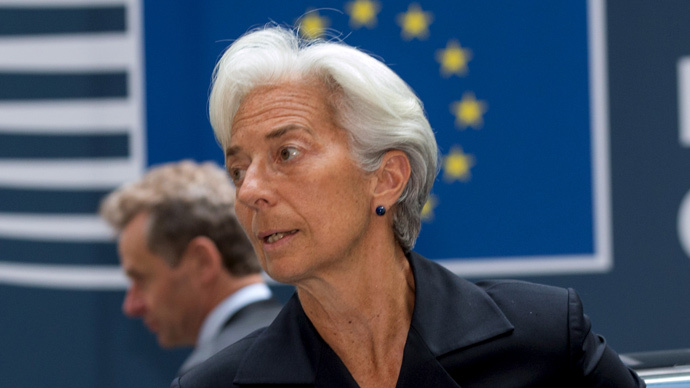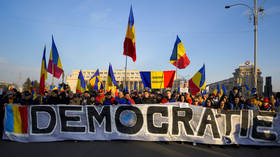IMF says Greece needs third bailout of €60bn, debt relief

Greece will need €10 billion over the next few months and an additional €50 billion in the next three years, says the IMF. Before making any repayments, Athens should have a 20-year grace period, so the last debt payment would be made in 2055.
Debt crisis: Will Greece exit euro? LIVE UPDATES
This possible relief could be a step towards Greece’s insistence for ‘unsustainable’ debt to creditors of €240 billion to be reorganized. Greece’s’ Finance Minister Yanis Varoufakis told Bloomberg Thursday that he would leave his post and rather ‘cut his arm off’ than sign a deal with creditors that doesn’t include debt reorganization.
READ MORE: Greece's Varoufakis: Rather 'cut my arm off' than agree to current deal
The IMF also predicts a significant slowdown in economic growth this year, zero percent, compared to the 2.5 percent projected earlier.
The statement from the IMF on a third possible bailout for Greece has thrown the fat on the fire of the national referendum scheduled for Sunday. The people will have to decide whether to vote ‘Yes’ or ‘No to the austerity measures offered to Athens by its creditors.
READ MORE: Greece and EU discuss third bailout of up to €50bn – Spanish economy minister
Leading politicians in Greece, including Prime Minister Alexis Tsipras and Finance Minister Yanis Varoufakis, are urging the people to vote ‘No’ to the offer. They both say voting against doesn’t imply giving negative to the eurozone and the EU. On the contrary, it would help Greece to clinch a better deal, they say.
Holding a referendum in Greece is aimed at avoiding risks for the country, said Tsipras. Varoufakis was more radical, saying he would rather cut off his arm than accept the offer. They both, however, intend to leave their posts if the result is a ‘Yes’.
The European politicians are seeing the referendum from a different angle. “The point is: the Greek referendum won't be a derby EU Commission vs. Tsipras, but euro vs. drachma,” said the Italian PM Matteo Renzi, and just about sums up everything said by the EU since last Saturday, when the referendum was announced.
Critics of the referendum are questioning what deal the Greeks are supposed to vote on, as the last bailout program expired on Tuesday and no new deal has been offered since then.
The latest polls and data from bookmakers suggest that the Greeks are more likely to back the cash-for-reform deal proposed by the creditors. There was a mood swing when the government closed banks, and imposed a €60 daily cash withdrawal limit. Up to 10 percent, according to different estimates, that were ready to say 'No' to the Troika are now prone to vote 'Yes' because of the measure.
The outcome of the referendum is still not clear; it is going to be a close game that can be decided at the eleventh hour.
On Wednesday, Greece became the first developed nation to default on international obligations, failing to pay €1.6 billion to the IMF that was due in June. The second financial aid package to Greece expired at the same time.












